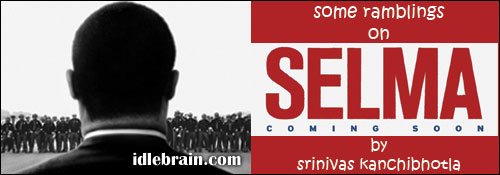
The deluge that ultimately inundates everything in sight can always be traced back to trickle that starts somewhere in an inconsequential fashion. Look at the origins at most of the floods, or for that matter, rivers. The merge point of the river with sea with all its gushing speed holds one in scare belief that this is the same overpowering force that originates as only little more than a small drip somewhere deep in the mountains. The scenario, metaphorically, cannot be more true of societal changes. The turmoil that the present day Middle East is embroiled in pulled in different directions by various opposing forces - moderate and fundamentalist - is rooted in a sharp slap across the face of a fruit vendor in the capital city of Tunisia. Most of the revolutions - French, English, Russian, American - find their successes seeped in small events that hold little value in terms of their say in the final result, yet have the capacity of galvanizing crowds purely because of their shock value. Political leaders understand quite well the intrinsic value of such 'statement' events. And the master at this game was none other than Mahatma Gandhi, with the Dandi March being one of his crowning achievements in raising the public conscience (home and abroad) about the tyranny of the imperialist rule imposing unethical tax on something as simple as common salt. But he knew that raising just hue and cry wouldn't stir up the hornet's salt. After his long march to that coastal area in Gujarat with thousands of followers, he followed it up with a one-two punch by calling for a symbolic protest in front of Dharsana Salt Works factory. Instead of the usual ritual of sloganeering and getting arrested right afterward, the strategy was to march up to the locked gates of the factory past the heavily armed security cordon. (What after reaching the gates was purportedly never discussed as the strategists knew that they wouldn't even be allowed that far, thus creating a good stage-managed scene). And so under the able guidance Maulana Azad, the freedom fighters locked in step row after row dressed in white khadi (again, for the shock value) and marched up to the police armed with heavy batons and clubs.
'Selma' is an action replay of the events unfolded at Dharasana Salt Works a couple of decades earlier, but this time in Alabama during the height of Civil Rights movement in the 1960's. The architect of march from Selma to Montgomery, to protest the disenfranchisement of black people under immoral and unethical statutes, Rev. Martin Luther King, a self-professed follower of Mahatma Gandhi (who had even a framed portrait of the latter in his office), having closely studied Gandhian methods of peaceful, yet forceful, non-violent, yet hard-hitting, visceral, yet soul-stirring, methods of mass resistance, spearheads this symbolic walking from one town to another (which housed the courthouse that accepted voter registrations) knowing fully well the consequences of brutal crushing by the local administration. But then again, that was the point. MLK wanted the march to be curbed, to be crushed, to be detained and to be disbanded in as cruel ways as possible, as such brazen acts of cowardice and inhumanity alone would raise the consciousness of the kind hearted souls towards the injustice meted out to its minority citizenry in the name of supremacy, and jolt the federal government into enacting laws that banned the practices of such illegal disenfranchisement. Unlike most bio-pics, this is not a movie around MLK, his struggles and his sainthood. In fact, it is about that key event in the Civil Rights Movement (much like Rosa Parks refusing to yield her seat in the bus to a fellow white traveller) and all the right forces (MLK, Malcolm X, the local civil rights groups) rallying around the city whipping it up into a state of moral frenzy. As though the trouble on the ground wasn't enough, there was Lyndon Johnson high atop at Washington having won a landslide in the just concluded Presidential elections, trying to put off the legislation lest he irks the Bible belt, and negotiating with MLK into calling off his march. As the various forces come together at Selma - MLK and his activists, the racist Governor of the state of Alabama George Wallace and his brutal administration, the back channels of advisors scrambling between Washington and Montgomery trying to placate the warring sides into backing off, the press, and the kindred souls of all colors descending on the city moved by the plight and peaceful protests of the blacks - the results turn explosive.
The first group of the white khadi clad workers approach the defensive line of the police, who promptly crack the skulls of the protesters bloodying their Gandhi caps and other wear. The downed protesters are immediately pulled aside by the waiting staff who quickly transport them into nearby tents for medical assistance. The second row moves into place. The batons come down fast on the heads. Crack. Blood. Down. Clear. Third row....Crack. Blood. Down. Clear...Fourth Row....Fifth Row... In the words of a western reporter stationed at the factory that day, "Whatever moral ascendance the West held was lost today. India is free for she has taken all that steel and cruelty can give, and she has neither cringed nor retreated...." All this without ever raising a fist, or firing a shot. Yeah, 'Selma' is an action replay of that Gandhian playbook, just as rousing, just as important, and just as infuriating.
checkout http://kanchib.blogspot.com for Srinivas's Blog.
